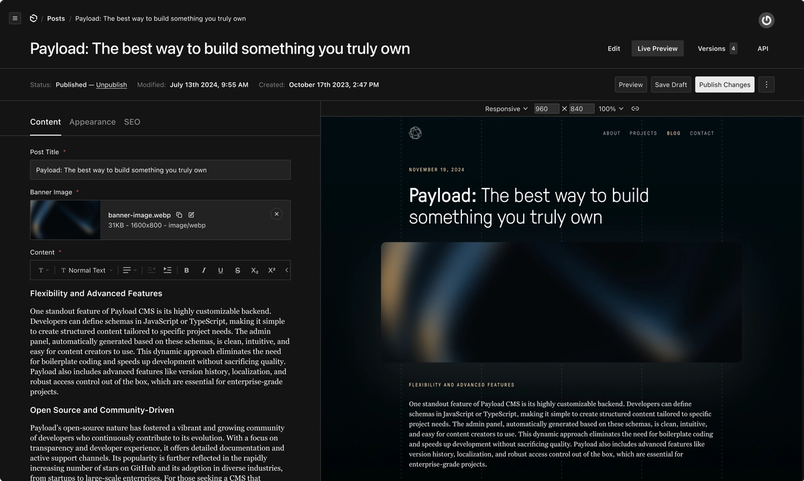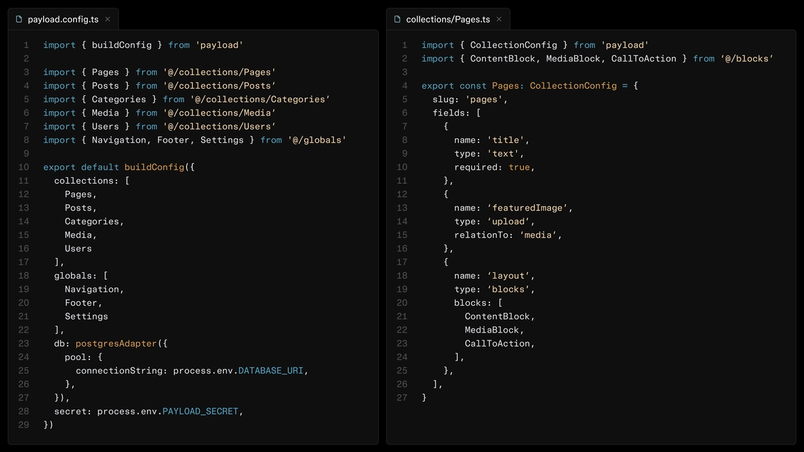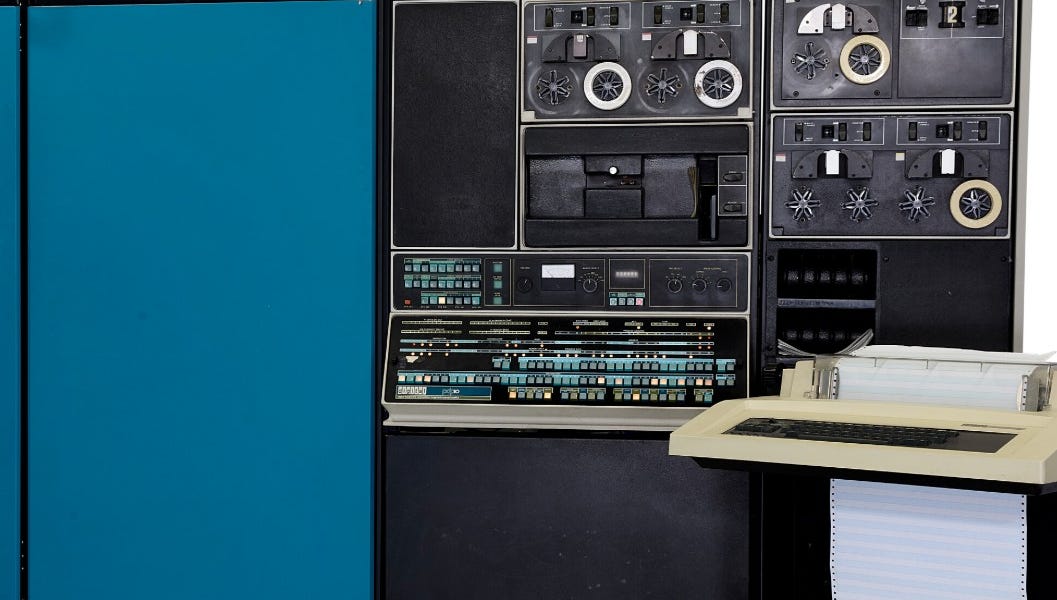At Config 2025, we talked about supporting the entire spectrum of software development, from designers and developers to other collaborators who take part in the product building lifecycle. We launched new products to make it easier for anyone to go from an idea to design assets to a live website, application, or digital experience.
Together with Payload’s developer-focused mindset and tools, we’ll be able to supercharge what we offer developers across both our platforms.

When we announced Figma Sites at Config, we shared that we’ll be rolling out a CMS for it in the months ahead. Figma CMS will make life easier for marketers and designers who need to update website content, and Payload brings all the stuff developers love—a powerful, customizable backend for building scalable websites and apps, plus an intuitive admin panel for editors. By teaming up with Payload, we’re creating something special.
Developers have flocked to Payload because you can customize pretty much anything, extend it however you need, and the developer experience is just plain better than the alternatives. That’s why it’s become one of the most popular open-source projects in its space, and we're excited to bring that same flexibility and power to the Figma community.
I’ve been blown away by this team, their product, and the trust they’ve built in just a few years. The fact that Payload is already used by several Fortune 100 companies is a testament to that.
Beyond that, one of the things that impressed me most about Payload was how deeply they care about their open source community. They’re always engaging, shipping improvements based on feedback, and have built a real connection with developers. We built Figma around the belief that great design happens through collaboration and community feedback, and Payload has done the same—creating a thriving open-source ecosystem where developers contribute, share knowledge, help evolve the offering, and collectively push boundaries. This shared philosophy has made our partnership feel natural from day one.

Payload will remain an open-source product. In the immediate future, nothing is changing for users. We will continue to actively invest in and improve the open-source project, and will communicate early and often with users of both Figma and Payload as we develop our CMS strategies and product roadmap, together.
The future of design and development is increasingly collaborative. We want Figma to be a central hub for digital product creation, where you can build and deploy what you create directly within our ecosystem. As AI has made it easier to generate more code and content, the ability to control what you deploy across channels and fine tune your end users’ experiences becomes even more important. Teaming up with Payload brings us a step closer to that vision by bridging the gap between design and development that has traditionally slowed product building teams.
We are excited to welcome the Payload team to Figma, and can't wait to see what our combined companies and communities build together.
.png)



